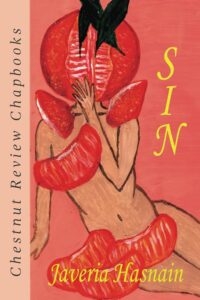The Business of Writing
by Heather Dobbins
May 18, 2015
I have friends who are true beasts of business, inciting much wonder from me for years. Some of these friends went to school with me, and some are former-teachers-turned-friends. I have learned from various publications about the necessity of making the time to submit work, apply to residencies and conferences, solicit readings, write reviews, and shape an online presence, but nearly everything of value I have learned is from friends.
I used to work at an art college, and I couldn’t help but notice that all students must take a professional practices class. They write statements, artist résumés, cover letters; and research galleries, representation, magazines, and internships. We writers, in contrast, chase after professors in parking lots with our manuscripts (Is the sequencing right this time?) and take over question-and-answer sessions after a great reading. Until we have a class dedicated to the business of writing in B.F.A., M.F.A., and Ph.D. programs, where faculty and visiting writers dispense advice, share blogs, point out what they learned from other writers, and hand out Poets and Writers articles, we will remain in a haze, spinning from poor or absent counsel.
My poet friends rarely bring up business matters unless I do, lest it seem garish. When they do, however, they can list a dozen editors, journal aesthetics, and the changing politics of mastheads in less than a minute. If I am lucky, they have their own algorithm for me and can point to a few journals that may give me the time of day. That doesn’t happen unless a writer submits with great care and builds relationships. That doesn’t happen unless a writer puts in chair-time. Most of my poet friends fumble around like I do and prefer and love best to talk about new projects or books that have changed our lives, so when one of them talks about business, I pay attention.
Poets are already mighty busy. I spend most of my lectures defending poetry, healing past traumas from gruff high school teachers, and arguing for the relevance of our work. Add to this the mysticism and magic of being a poet. If Randall Jarrell says we are getting struck by lightning when we write, we are “the music / While the music lasts” (T.S. Eliot); we feel the Presence of other great poets with Theodore Roethke, strive for redefinition (Evie Shockley), create “word paintings” like Yusef Komunyakaa, and make a mess of everything with our incessant conjuring. Perhaps the business part of our lives can seem too much. Maybe our sensitivities work against us in this way.
I think of the business part of poetry like clerical conditioning. We can’t very well just show up for the game and expect to be our best selves. Judge me if you want, but I depend on my own reward system. I make playlists for when it’s poetry business time, and I use every kind of motivational trick I can. Sometimes I buy a new record that I’ll play on repeat till I’m done with a day’s deadlines. I am just like everyone else who thinks the business part of what we do is boring. Inspired by my brother who is a painter, I used to get up at 4:30 in the morning for years. It was truly horrible to get out of bed, and that did not get easier for me over time, but there was something about starting the day for me—doing research for grants, residencies, conferences taught by poets I admire, contests, and theme issues. I also didn’t have any of the I-should-be-doing-this-and-that-blues for the rest of day. Now I pick one Drudgery Day per week. I also travel to see friends and reward myself with supper and libation after a long day of business. I remember hanging out at Diesel Cafe in Somerville, Massachusetts, with a fiction-writing friend: we sat at this small table and did submissions for hours, and I looked up to see the laptop glow on his face, knowing we were taking care of each other by being there. We were demonstrating our investment in the other.
I had to decide when I thought I was ready for the business of poetry. I had been advised that the worst thing for a poet is ambition; the poem must always trump the ambition. This elicited numerous questions: Why and where did I want to publish? Was I letting others decide what I should do? What did I really want? As a poet, I never feel wise enough or good enough, but I had to decide when I was decent enough that I wouldn’t cringe a few years later after a poem was published. I had a flute teacher tell me once: “The saying’s wrong. Practice doesn’t make perfect; perfect practice makes perfect.” My writing has improved because I am immersed in the greatness of others: I constantly read poetry that’s better than my own, and I choose my friends and teachers for the strengths they have that I lack. But I wasn’t ready for the business side of poetry, frankly. I started asking my publishing-successful friends what they were doing. I studied how they spent their hours. The ones who have a good publishing history all make the time for business. Note I didn’t say successful. There are many successful poets out there who don’t submit. They are happy writing better poems every year. Publishing doesn’t equal success for everyone. That’s important to distinguish.
I’ve noticed that after we get a collection of poems published, we have the book launch, post elated pics of ourselves with towering boxes of new-book-smell glee for a month or two, but then we often don’t hustle the book. In Memphis, where I’m from, nearly everyone is a musician. I know what they have to do to make it because I’ve seen it my whole life. They do not make a record, have a release party, and then move on to the next project. Some poets are lucky to have book tours and guest poet gigs set up for them. We must take the time to set up readings in book stores, especially independent ones, reach out to book clubs, and ask for reviews. We can sleep in guest rooms and visit with loved ones in their cities and ask them to host readings and parties for us just like musicians do. You know that’s a good time. We’d come back rejuvenated and glad-hearted. This helps poetry overall because it brings more poetry to the people, as June Jordan advocated, and it keeps it read aloud, which our kind has always done superbly. It’s more fun than promoting this and that online. Also, isn’t it the best feeling when a poem isn’t just yours anymore, when someone else needs it more now?
Another part of the business is helping other poets. We have to take time to help poets sell their books by buying them for gifts. We must also write reviews. There are so many important books out there not being read because poets don’t have agents, and we are the worst about promoting ourselves and what we love. We are sensitive, and we aren’t pushy. We hate to ask folks to do anything because we don’t want to be a bother. Lastly, we have to stop giving our books away. Recently, a poet tried to sell me his book for his discounted price. He had driven to Memphis from Fayetteville with his family. I had a teacher friend tell me, “People know that quality is worth the money.” Think about all those degrees, all those dreams, all those books you bought, ink, envelopes, printers, AWP costs—you know this list all too well. We don’t even charge for drinks at readings. We leave a bowl out. A church or school would never survive that way. Money is one way to thank someone.
Recently, I talked to the College Scholars program at the University of Tennessee. I was trying to pull them over to our side. I laid it on thick, explaining how they didn’t need to be an English major to need poetry. I shared poems by mathematicians, geologists, historians, and medical doctors. I also told them about Clare Morgan’s What Poetry Brings to Business, a book of studies showing that poetry readers further developed enhanced “self-monitoring” strategies, which bettered the “efficacy of their thinking processes.” She argues that the capabilities we gain from reading poetry are powerful, so much so that we can “help executives keep their organizations entrepreneurial, draw imaginative solutions, and navigate disruptive environments where data alone are insufficient to make progress.” Let’s help ourselves by applying these skills to the business side of poetry.
ABOUT THE AUTHOR
Heather Dobbins’s poems and poetry reviews have appeared in Beloit Poetry Review, CutBank, Raleigh Review, The Southern Poetry Anthology (Tennessee), The Rumpus, and TriQuarterly Review, among others. She has been awarded scholarships and fellowships to Squaw Valley Community of Writers, Vermont Studio Center, and the Virginia Center for Creative Arts’ workshop in Auvillar, France. Dobbins graduated from the College Scholars program at the University of Tennessee, Knoxville. After several years of earning graduate degrees in California and Vermont, she returned to her hometown of Memphis. Her debut, In the Low Houses, was published in 2014. For more information, visit heatherdobbins.com






